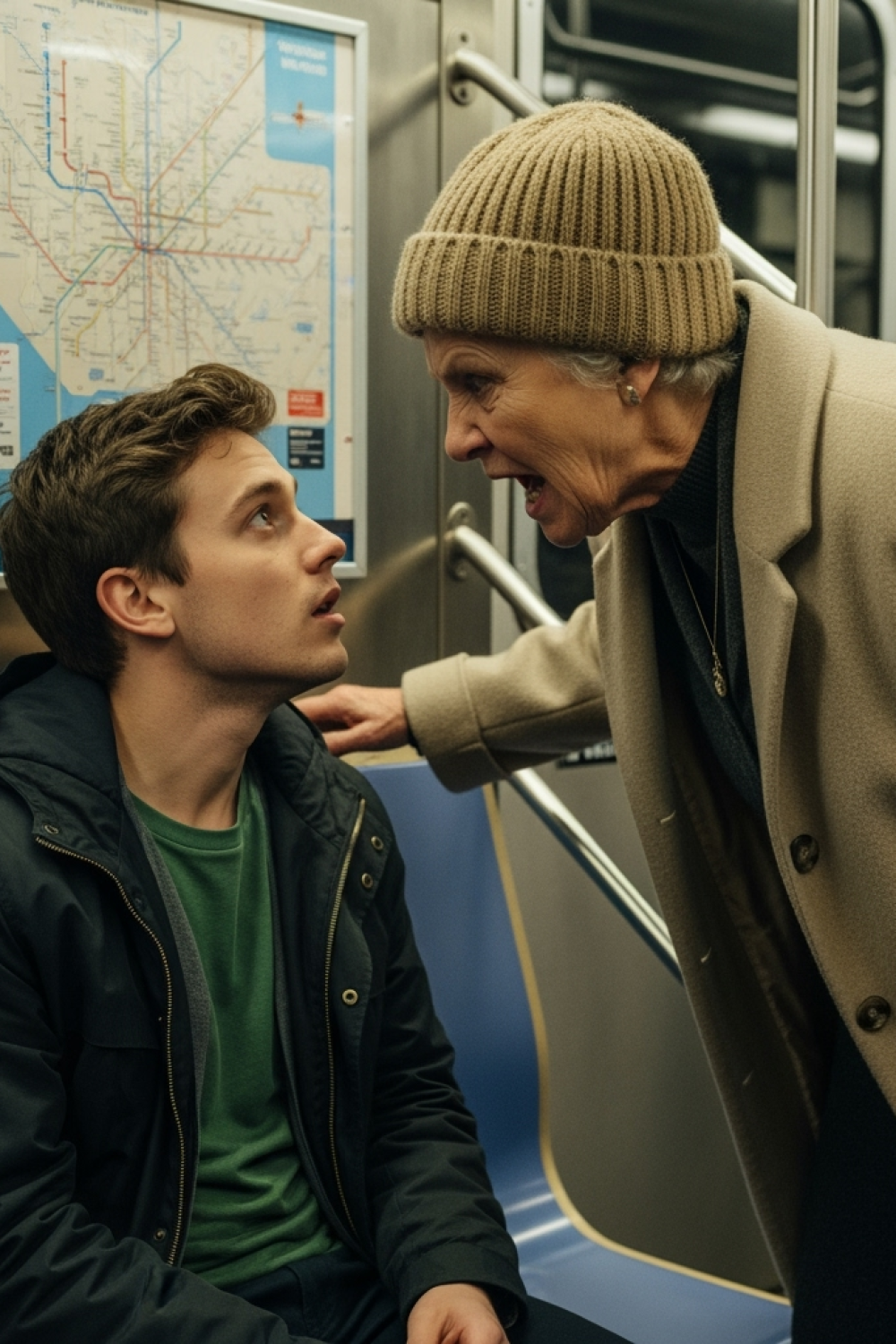Want to save this recipe?
Enter your email below and we’ll send the recipe straight to your inbox!
Judgmental Gazes That Fail to See
The subway train arrived with that metallic hiss announcing the opening doors. In the grayish evening hour, a sea of humanity poured into the already crowded car. Among them stood Antoine, earphones firmly in place, his gaze lost in the emptiness that only the fatigue of an endless day can create. He didn’t immediately notice the woman who had just entered—elegant, confidently in her fifties, wearing a fitted gray coat and heels that clicked against the floor with the authority of someone unaccustomed to resistance.
She brushed past him, her knee grazing his without an apology. Then she stopped abruptly, as if struck by a sudden thought, turned around and stared Antoine down.
“Didn’t anyone ever teach you to give up your seat to your elders?!” she snapped in a voice that sliced through the silence of the car.
Antoine raised his eyes slowly, as if emerging from another world. He removed one earphone, his face expressionless.
Dignity in Silence Amid Public Humiliation
The gazes of other passengers turned toward this familiar scene. Teenagers at the back of the car leaned forward, eager for drama. A businessman looked up from his phone. A mother instinctively tightened her grip on her child’s hand.
“I’m talking to you!” the woman insisted. “Is it really so difficult to show a little respect? Or do you think the subway exists solely for your personal comfort?”
Antoine remained perfectly calm. Not a muscle in his face betrayed the public humiliation he was enduring. No redness rose to his cheeks, no anger in his eyes. There was in him that strange, almost disturbing tranquility of those accustomed to being misjudged.
“I apologize,” he said simply, in a gentle voice devoid of any irony.
Then, with measured movements, he began to rise.
The Moment When Appearances Dissolve
The seat Antoine had just vacated groaned under the emptiness, sinking toward the subway wall, revealing its broken structure. The backrest hung by a single hinge, the padding escaping through a gaping tear, and metal springs exposed like the entrails of a wounded beast. It wasn’t a seat but a trap.
Antoine now stood, and that’s when everyone in the car noticed what no one had seen before: his left leg moved stiffly, as if numb or partially immobile. He discreetly leaned against the handrail, adjusting his weight to maintain balance as the subway resumed its journey.
An icy silence filled the space. The woman stared at the defective seat, then at the young man’s leg. Her expression changed, contempt giving way to something resembling shame.
The Invisible Scar of Prejudice
“I… I hadn’t noticed,” she whispered, her voice having lost all confidence. “Forgive me.”
Antoine simply nodded slightly, put his earphone back in and looked away, as if granting this woman the grace of not having to face her own mistake any longer. It wasn’t a gesture of superiority, but of compassion—the kind born from being habitually misunderstood.
The other passengers returned to their activities, but something had changed in the atmosphere of the car. An elderly woman looked more carefully at a standing man she had judged too young to need a seat. A teenager put away his phone and offered his place to a pregnant woman he had just noticed.
The woman in the gray coat remained motionless, eyes fixed on her hands nervously clutching her bag. She seemed to be contemplating not the young man, but all the other people she might have hastily judged in her life.
The subway continued its underground journey, indifferent to this small human drama, gently swaying its passengers as if to remind them that we are all, in some way, at the mercy of the same jolts.

